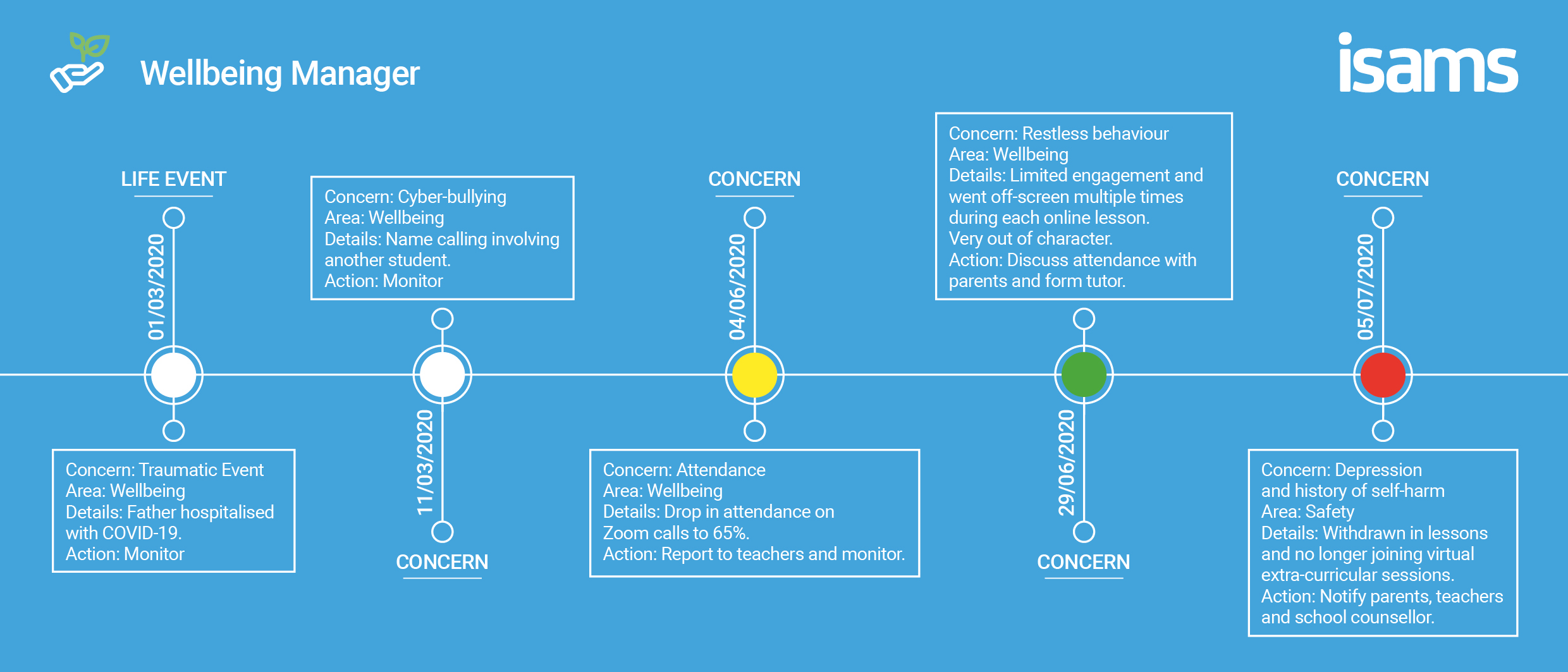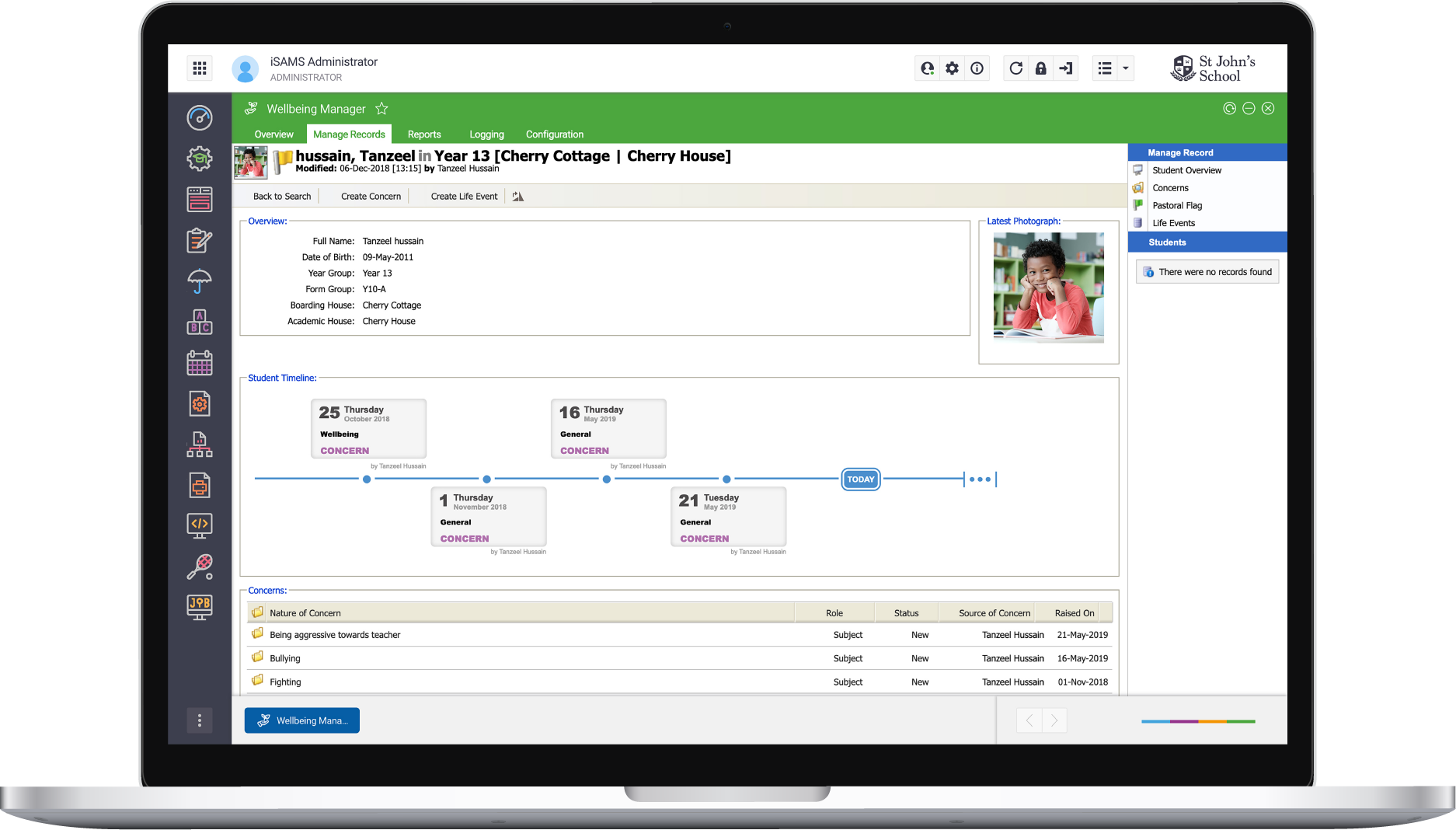*Please note: This content was published during the COVID-19 pandemic
As the global pandemic rumbles on, many schools will be forced into student lockdown and virtual learning, or else shut their doors entirely. The balance of technology vs face-to-face learning has seen a remarkable shift over recent months, so much so that many schools have become reliant on cloud-based platforms to continue teaching and learning from home. This has profoundly impacted not only classroom learning, but every area of school life. One of the most significant areas, and one of the most talked-about barriers to learning over the last decade, is student wellbeing.
The effects of COVID-19 have sent shockwaves through schools’ pastoral communities around the world, as staff and students navigate social isolation, new learning environments and teaching methods, and the pressures that accompany the “new world” we find ourselves in. As a result, what was already a challenging aspect of school life has become even more complex to manage.
Speaking to Henry Fairwood, Teacher and Housemaster at Barnard Castle School, we discussed some of the challenges they’ve faced when monitoring student wellbeing and how migrating to a digital platform, iSAMS’ Wellbeing Manager, has supported their staff and students during the lockdown period.
Synchronising school data
Your Management Information System (MIS) is crucial to the daily running of your school, namely as it stores all your fundamental data. You can therefore save huge amounts of time by finding a wellbeing tool which integrates with your MIS in real-time. Not only will this result in a smoother setup, but it means you won’t have to input or edit information twice on two different systems.
As Barnard Castle School found:
“The key benefit of switching to a digital tool is having everything in one system. This has helped the school centralise all its information pertaining to students’ academic performance, behavioural history and pastoral history, and was the overarching reason we went with this product.”
Logging wellbeing concerns
With hundreds of students in your school’s care every day, logging and tracking wellbeing concerns for each of them may seem a daunting task. That’s why it’s critical to automate as much of this as possible, to help manage your staff’s time and improve the school experience for every student.
Barnard Castle School revealed that one of the best things about Wellbeing Manager is that it provides them with a better solution to track safeguarding. “The logging of concerns has been the best feature, particularly as it allows us to create a timeline of events relating to a student.” Linking this with other areas, such as academic performance, then provides a more holistic picture of a student’s school life over time.

Complying with security regulations
Following the GDPR regulations introduced in May 2018, data security has once again become a core concern for schools. This is particularly important when it comes to a student’s pastoral information, not just externally but also when managing access for internal members of staff.
This is another area where a digital safeguarding tool has been a real advantage for Barnard Castle School, who have been able to set detailed levels of permissions within Wellbeing Manager to create additional layers of security for this sensitive data. In doing so, they have ensured that only relevant and qualified members of staff can access wellbeing insights for individual and groups of students.

Reporting to Management
Beyond collecting and monitoring pastoral data, this information also needs to be readily available to share with your Senior Leadership Team and external government agencies where needed. By collating all this in a single digital platform, Barnard Castle School found that it’s not only easier to find and analyse the insights they’re looking for but they can also share them more easily with relevant members of the school community.
“When a student is struggling pastorally it is easy for the Deputy Head or Head of Pastoral to find all of the wellbeing information for that student. This includes when a call comes in from an outside agency (e.g. CAMHS), as all of the information is right there.
Going digital also means that staff have been able to continue using Wellbeing Manager to log concerns and track issues during lockdown. We have found that working remotely has meant that communication is all the more important and using Wellbeing Manager has helped ensure information on safeguarding is communicated clearly across our staff base.”
Whilst recent circumstances have undeniably placed a strain on education and pastoral communities, this could be a good opportunity for you to capitalise on the shift to digital by investing in tools which ease the workload of your staff members and maintain a comprehensive oversight of every wellbeing and safeguarding concern at your school – all whilst keeping everything accessible from the security of your own homes.
Our Top Tips for going digital with student wellbeing:
- Integrate your chosen wellbeing tracker with your MIS
- Set permissions to keep sensitive data secure
- Look for data shareability options
- Go for cloud-based, so you can access this system wherever you are
- Ease of use is a must when logging wellbeing concerns
Sign up to receive our newsletter
Most Popular
- Celebrating International Women's Day in schools March 02, 2023
- Benefits of effective communication in schools April 10, 2024
- 7 Shocking Secrets to Crafting an Unbreakable School Timetable May 23, 2019
- 5 top tips to make writing your end of term report easier March 26, 2019
- The importance of benchmarking for schools July 24, 2023




